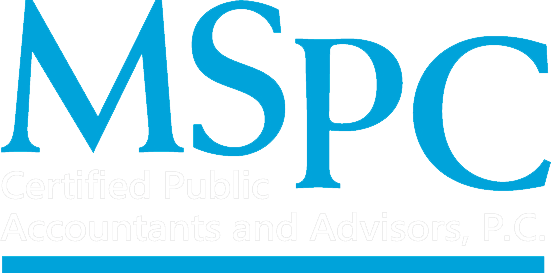Tax time – it comes once a year, but unlike the holidays, it’s certainly not as festive or well-received. It can be an anxious period, as taxpayers compile essential documentation showing their income, withholdings, financial transactions (such as a new home purchase or the sale of stocks or bonds), and other meaningful tax-related activities during the year. As the documents are collected, many are wondering what opportunities they have to reduce their income taxes. Effective tax planning is generally conducted throughout the year, but this doesn’t mean that there are no immediate opportunities, including various education-oriented tax incentives. The good news is that these incentives can benefit not only traditional college-age students, but also professionals and those seeking continuing education. A brief summary of certain tax incentives available for education and education-related expenses is provided below.
American Opportunity Tax Credit – This credit is available for qualified education expenses paid for an eligible student’s first four years of higher education. An eligible student is one who is pursuing a degree or other credential, is enrolled at least half time for one academic period beginning in the tax year, and does not have a felony drug conviction. The maximum annual benefit is $2,500 per student.
Lifetime Learning Credit – This credit can be used against qualified tuition and related expenses to pay for an eligible student’s enrollment in an eligible educational institution. An eligible student is one who is enrolled, taking classes, or participating in a degree-seeking or skills enhancement program, and is enrolled for at least one academic term beginning in the taxable year. Unlike the American Opportunity Tax Credit, this credit can be used to help pay not just for undergraduate programs, but also for graduate degrees, professional degrees, and skills enhancement courses. The credit is worth up to $2,000 per return, and there is no limit to the number of times that it can be claimed.
Student Loan Interest Deduction – If a taxpayer has made student loan payments on a qualified student loan for qualified education expenses, they may be able to deduct up to $2,500 of the loan interest paid. Qualified education expenses include tuition and fees, room and board, books, supplies, software, required equipment- and other expenses, including transportation. Note that personal loans or those taken from a qualified employer plan are not eligible for the deduction.
Tuition and Fees Deduction – A taxpayer can deduct qualified education expenses paid during the year for themselves, their spouse, and their dependents. The maximum value of the deduction is $4,000 per taxpayer per year. Qualified education expenses include tuition, fees, and certain related expenses required for enrollment or attendance at an eligible educational institution. Student activity fees, laboratory fees, or additional fees for books and other materials qualify if they are required for enrollment. The deduction can only be taken against higher-education expenses…
Work-Related Education Expense Deduction – A taxpayer can deduct the costs of qualifying work-related education expenses as a business expense if the education is required to keep their salary, status, or job, or if the education maintains or improves a skill needed in their current position. The deduction is not allowed if the education qualifies the taxpayer for a new trade or business. Deductible expenses include tuition, books, supplies, laboratory fees, certain transportation and travel costs, and other educational expenses.
Contact Us
There are a number of tax-saving opportunities available for qualifying educational activities, but the above is only a general summary of the opportunities that you may be eligible for. Now is the time to thoroughly review your situation to determine if you can take advantage of these or other tax incentives. If you are looking for assistance with your individual or business tax compliance needs, MSPC can help. For additional information, please call us at 212-682-1234 or click here to e-mail us. We look forward to speaking with you soon.
